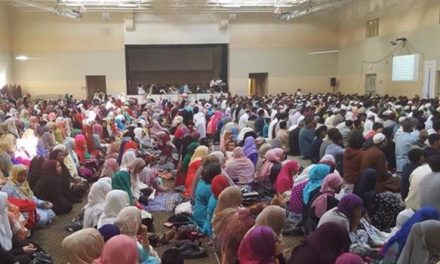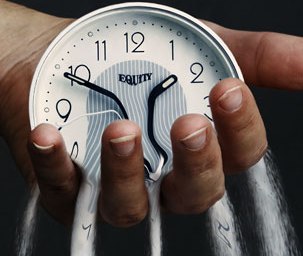
In his well-known book, Al-Hikam (Words of Wisdom), sheikh Ahmad Ibn `Ataa’illah As-Sakandari says:
The origin of every sin, forgetfulness, and lust is in being self-righteous, and the origin of every good deed, awareness, and chastity is in being self-critical.
After looking within oneself and discovering one’s flaws, it is time to know the origins of these flaws so that we can get rid of them. Thus, Ibn `Ataa’ says in this next step/stop: “The origin of every sin, forgetfulness, and lust is in being self-righteous, and the origin of every good deed, awareness, and chastity is in being self-critical”.
The origin of flaws in general – whether they are sins, forgetfulness or lusts – is a false feeling of self-righteousness. Many people tell themselves: “I am really good! And I am doing good deeds too Look at others. They are lost, but I am guided. They are evil and I am fine. I do not have to worry”.
But Allah Almighty says:
{Nay! I call to witness the Day of Resurrection! But nay! I call to witness the accusing voice of a human’s own conscience!}.(Al-Qiyamah 75: 2)
The accusing voice of a human’s own conscience is something great enough for Allah to call as a witness! This is the inner voice of a believer who does not feel content with what he/she does and always blames him/herself.
In another verse we read:
{And yet, I am not trying to absolve myself: for, verily, one’s inner self does incite to evil, and saved are only they upon whom my Sustainer bestows His grace. Behold, my Sustainer is much forgiving, a dispenser of grace!}. (Yusuf 12: 53.)
This self-critical statement from the Quran was said by Prophet Yusuf/Joseph (peace be upon him), and that is how he felt. What about us?
A voice of human’s own conscience will save him/her in the Day of Judgment. And a human who does not have conscience to blame him/herself is in danger. The Quranic story of the two owners of gardens mentions one of them who was very content with himself. He even said:
{And neither do I think that the Last Hour will ever come. But even if it should come, and I am brought before my Sustainer, I will surely find something even better than this as my last resort!} (Al-Kahf 18: 36)
He was confident that in the Day of Judgment, he will find a better garden than the one he had in this worldly life.
Therefore, the default feeling of a believer – according to the Quran and the prophetic tradition – is not to ever feel self-righteous. This is what the Prophet (peace and blessings of Allah be upon him) taught his companions.
Hanzalah, one of the Prophet’s companions, had knowledge about the names of the ten hypocrites of Medina, who were unknown to the other companions. `Umar ibn al-Khattab used to ask Hanzalah if his name was among the ten hypocrites! Why did `Umar ask Hanzlaha this question? It is clear that this is because he did not feel self-righteous at all. In fact, it shows a high level of self-criticism that is rare to find.
Abu Bakr as-Siddiq used to say: “I would not feel safe from Allah’s deep devising even if one of my feet was in paradise”. Why did Abu Bakr say that? Because he thought that he does not deserve paradise as a guaranteed reward from Allah. This is Abu Bakr about whom the Prophet (peace and blessings of Allah be upon him) said: “If the faith of Abu Bakr is put on one side of the scale and the faith of the nation of believers is put on the other side, the side of Abu Bakr will outweigh the other side”.
In the light of the above, a feeling of self-righteousness is the origin of all sins, as Ibn `Ataa teaches us. If one feels self-righteous and think that you secured an exclusive or special status, surely one will start to feel that he/she can make mistakes. But if you fear Allah and think that you are the least of the believers, you will stay away from evil-doing.
bn `Ataa’ is also talking in this word of wisdom about forbidden lusts, i.e., arrogance, miserliness, greed, extravagance, etc. He said that feeling self-righteous is the origin of every forbidden lust. If you avoid this feeling, you will keep yourself away from falling for these lusts. This was the practice of the Prophets, Messengers, and righteous people.
However, the virtue of self-criticism should not turn into self-destruction. Self-destruction happens when a person always blames himself harshly until he feels desperate. For example, if a person keeps telling himself that he is no good, he has never done one sincere good deed, etc., he will eventually feel hopeless and will abandon everything. This course of action is unacceptable.
Therefore, moderation and balance is a virtue that lies between two vices; blaming oneself until one feels desperate, and not blaming oneself at all until one feels self-conceited. With moderation, our inner self will improve and we will advance in the course of our spiritual journey to Allah.
====
ٍSource: www.onislam.net — Ibn Ataa’s Pearls of Wisdom — Jasser Auda






